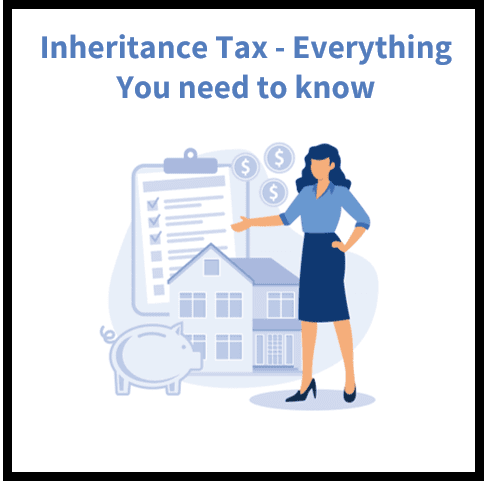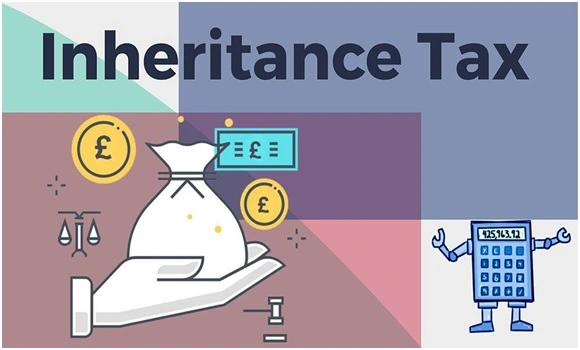The tax on private and business property is known as “inheritance tax.” Many people think that they can’t be affected by this tax because they aren’t the biological parents of their deceased parent’s property. However, this is not the case. The law states that every person who owns property that can be passed on to someone else (like a business or an estate) must pay inheritance tax on that property.
If you are the legal owner of property, you must pay inheritance tax on it if you are a member of a European Union country, Canada, Japan, or another country in which the government requires all owners of property to pay inheritance tax. Even if you’re not sure whether your situation falls into one of those categories, it’s still worth knowing about it so you can avoid paying too much in taxes.
What is Inheritance Tax?
Inheritance tax is a tax paid on the transfer of personal property between relatives, friends, or business associates. The law generally applies to all types of property, including real estate, money, stocks, bonds, and intellectual property. The tax is governed by a special instrument called the “Inheritance Tax Law.” The law defines who is considered a “relative,” “friend,” or “business associate.” The law further defines what types of property are taxable under the law.
What types of property are taxable under inheritance law?
Here are some examples of taxable property: Real estate, Structures and land improvements, livestock, vehicles, boats, aircraft, and even pets. There are many types of property that are not considered to be taxable under inheritance law. If you are unsure whether a piece of property is taxable, check with the tax assessor of your area.
How much is the government taxing Inheritance Tax?
The amount of inheritance tax that you must pay depends on how much you inherited and on your income level. The amount of tax depends on how much the original owner paid in estate taxes and if the person leaving the inheritance is applying for a tax credit. The law currently allows a 50% credit on the first $11,000 of taxable income, a 25% credit on the next $5,000, and a 12.5% credit on the remaining income. This means that someone who inherited $25,000 from a relative would only owe $1,500 in inheritance tax.
When does the government start collecting inheritance tax?
The real estate transfer tax, which is known as the “transfer tax,” is not the only tax that applies to gifts and inheritances. The government also levies a special gift and inheritance tax called the “death tax” on the value of a person’s estate above a certain amount. The “death tax” is not the same as the “inheritance tax.” The “death tax” is a tax on the last dollar that a person has. Inheritance tax is a tax on the entire estate, regardless of how much was given away.
What will happen to all that money you inherit from family and friends?
All the money you inherit from a family member or friend will be taxable as ordinary income, just as if it were your own money. However, if the individual leaving the money to you is the same person who inherited it, then it will be subject to the “death tax.” If that person is not the same individual who paid the original inheritance, then the money is not subject to the death tax. Instead, the person paying the inheritance will be subject to the “inheritance tax.”
This includes trusts and estates as well as museum pieces. However, as noted above, if the person leaving the money to you is different from the person who inherited it in the first place, then the inheritance will be exempt from the death tax.
How to prepare your estate for inheritance tax
The most important part of preparing your estate for inheritance tax is to know the value of your property. You can get this information from the assessor of your area or from an appraiser. You also need to know the market price for your property, especially if it is a rental property.
This will help you determine what you will be able to sell your property for and encourage you to sell at a higher price.
What property can be included in Inheritance Tax calculation?
Any property that you owned, including real estate, land improvements, livestock, vehicles, boats, aircraft, and even pets. There are many types of property that are not considered to be taxable under inheritance law. If you are unsure whether a piece of property is taxable, check with the tax assessor of your area.
The IRS’ Role in Calculating Inheritance Tax
The IRS plays an important role in the calculation of inheritance tax. The IRS requires all owners of property in the United States to file an annual tax return, even if they have no income from the property. The IRS then uses that information to determine if any of that person’s relatives or friends have to pay inheritance tax.
What Can Be Excluded From Inheritance Tax
A number of things are specifically excluded from inheritance tax. These include: Bequeathing a homestead or farm to a family member or friend. Bequeathing a city or state home. Bequeathing a vehicle to a family member or friend. Bequeathing a piece of property to a non-relative. Remember, however, that some of these things can still be taxable under inheritance law.
Is paying an inheritance tax bill worth it?
The primary reason to pay inheritance tax is to avoid paying taxes on money you would otherwise be tempted to keep for yourself. If you are required to pay income taxes on your own money, you will likely end up paying more in taxes than if you were required to pay them on the money that your relatives and friends paid into the government.
However, there are a few factors to keep in mind when deciding whether or not to pay inheritance tax. First, you will likely owe more in inheritance tax than if you had simply left the money to your relatives and friends. This is because you will be factoring in the fact that someone else will have to pay inheritance tax on the money if you die.
Secondly, if you have to pay inheritance tax, then you may as well use it to help pay for things that you want to do for yourself.
The harsh reality is that, without inheritance tax, you would not be able to give your children the education they deserve. You would not be able to provide the healthcare that you want for yourself or your family. You would not be able to give your employees the raise that they deserve. You would not be able to provide for your own funeral or place of burial. The list goes on and on.
Avoiding Inheritance Tax altogether
If you do not have to pay inheritance tax, or if the benefits of paying it outweigh the costs, you may be inclined to avoid paying it. However, there are a few things you should keep in mind first. First, if you do not have to pay inheritance tax, then it is unlikely that you will need to contribute to an inheritance fund.
If you have family members or friends who are able to pay inheritance tax, then it will not be a burden on you to help them out. Even if you have to pay a small amount each year, it will go a long way toward helping you avoid paying inheritance tax in the future.
Conclusion
Inheritance tax is a tax that is charged on the transfer of personal property between relatives, friends, or business associates. The law generally applies to all types of property, including real estate, money, stocks, bonds, and intellectual property. The tax is governed by a special instrument called the “Inheritance Tax Law.” The law defines who is considered a “relative,” “friend,” or “business associate.” The law further defines what types of property are taxable under the law.





31 thoughts on “Inheritance Tax: A Comprehensive Guide for Filers”
… [Trackback]
[…] Read More on that Topic: skillfine.com/inheritance-tax-comprehensive-guide/ […]
… [Trackback]
[…] Find More Info here to that Topic: skillfine.com/inheritance-tax-comprehensive-guide/ […]
… [Trackback]
[…] Find More on to that Topic: skillfine.com/inheritance-tax-comprehensive-guide/ […]
… [Trackback]
[…] Find More Info here to that Topic: skillfine.com/inheritance-tax-comprehensive-guide/ […]
… [Trackback]
[…] Find More on that Topic: skillfine.com/inheritance-tax-comprehensive-guide/ […]
… [Trackback]
[…] Read More Information here to that Topic: skillfine.com/inheritance-tax-comprehensive-guide/ […]
… [Trackback]
[…] Information to that Topic: skillfine.com/inheritance-tax-comprehensive-guide/ […]
… [Trackback]
[…] Information to that Topic: skillfine.com/inheritance-tax-comprehensive-guide/ […]
… [Trackback]
[…] Information on that Topic: skillfine.com/inheritance-tax-comprehensive-guide/ […]
… [Trackback]
[…] Here you will find 25900 more Information on that Topic: skillfine.com/inheritance-tax-comprehensive-guide/ […]
… [Trackback]
[…] Find More Info here to that Topic: skillfine.com/inheritance-tax-comprehensive-guide/ […]
… [Trackback]
[…] Info to that Topic: skillfine.com/inheritance-tax-comprehensive-guide/ […]
… [Trackback]
[…] Info on that Topic: skillfine.com/inheritance-tax-comprehensive-guide/ […]
… [Trackback]
[…] Information to that Topic: skillfine.com/inheritance-tax-comprehensive-guide/ […]
… [Trackback]
[…] Information on that Topic: skillfine.com/inheritance-tax-comprehensive-guide/ […]
… [Trackback]
[…] Here you can find 33824 more Info on that Topic: skillfine.com/inheritance-tax-comprehensive-guide/ […]
… [Trackback]
[…] Read More on that Topic: skillfine.com/inheritance-tax-comprehensive-guide/ […]
… [Trackback]
[…] Find More on on that Topic: skillfine.com/inheritance-tax-comprehensive-guide/ […]
… [Trackback]
[…] There you will find 48142 more Info to that Topic: skillfine.com/inheritance-tax-comprehensive-guide/ […]
… [Trackback]
[…] Find More on on that Topic: skillfine.com/inheritance-tax-comprehensive-guide/ […]
… [Trackback]
[…] Read More on on that Topic: skillfine.com/inheritance-tax-comprehensive-guide/ […]
… [Trackback]
[…] Find More to that Topic: skillfine.com/inheritance-tax-comprehensive-guide/ […]
… [Trackback]
[…] Find More here to that Topic: skillfine.com/inheritance-tax-comprehensive-guide/ […]
At the beginning, I was still puzzled. Since I read your article, I have been very impressed. It has provided a lot of innovative ideas for my thesis related to gate.io. Thank u. But I still have some doubts, can you help me? Thanks.
Your point of view caught my eye and was very interesting. Thanks. I have a question for you.
Can you be more specific about the content of your article? After reading it, I still have some doubts. Hope you can help me.
You’re so awesome! I don’t believe I have read a single thing like that before. So great to find someone with some original thoughts on this topic. Really.. thank you for starting this up. This website is something that is needed on the internet, someone with a little originality!
20687 48623somehow identified your website when i was kind of stoned. very good read 674930
Your point of view caught my eye and was very interesting. Thanks. I have a question for you.
138554 535667Hiya! awesome blog! I happen to be a day-to-day visitor to your site (somewhat more like addict ) of this website. Just wanted to say I appreciate your blogs and am searching forward for a lot more to come! 112182
96667 133327I was reading some of your content material on this website and I believe this internet internet site is actually informative! Keep putting up. 678116